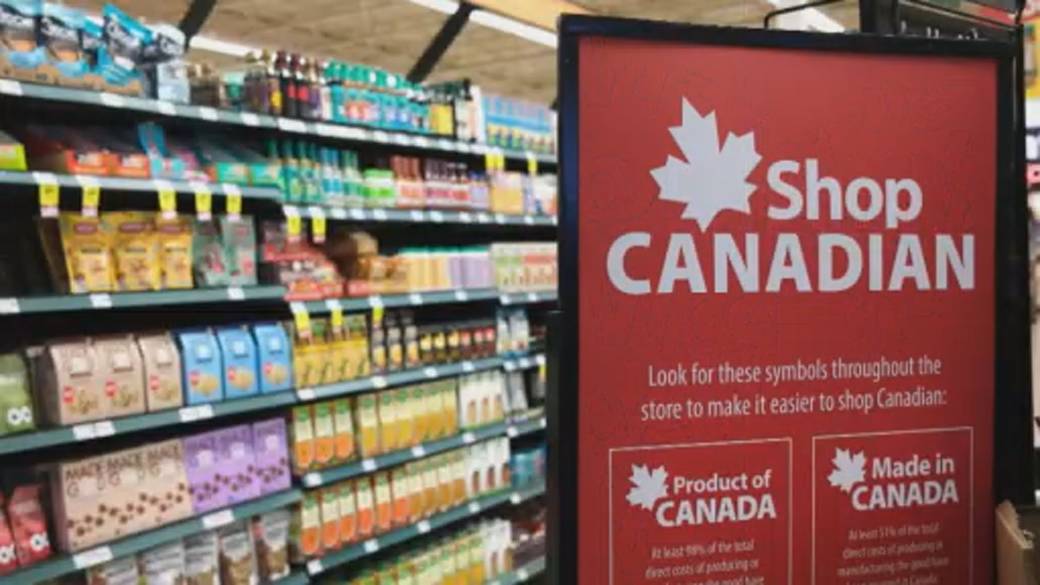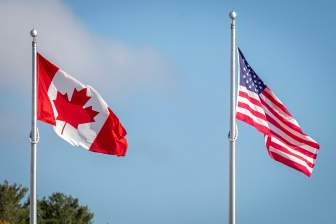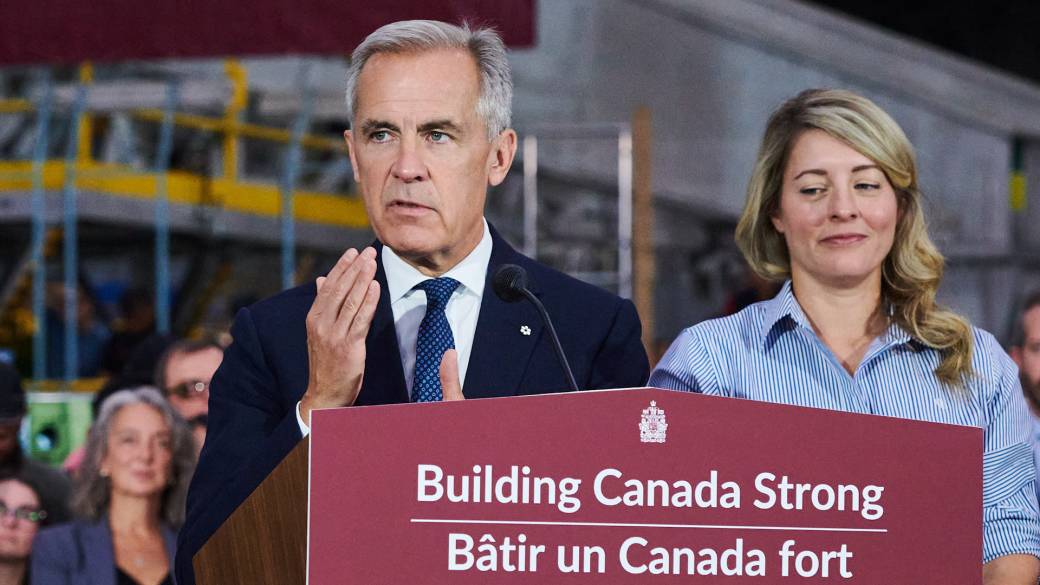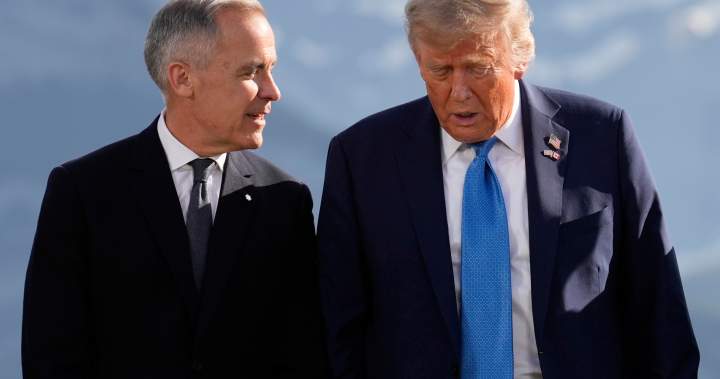It has been nine months since Donald Trump returned to the White House, and in that time has upended the world order around trade, relentlessly expressed an “America first” mentality, and mused about annexing Canada as the 51st state.

He also seems to have upended how Canadians see our southern neighbour.
At the core of that shift is trust, which our data show Canadians have lost. When trust between neighbours breaks, proximity becomes the problem, and right now six in 10 Canadians say we can never trust the United States the same way again.
That measure has remained remarkably consistent since tracking began in February, despite efforts made by Canadian Prime Minister Mark Carney and his team to preserve the relationship while defending Canadian interests.
Canada’s relationship with America has entered an uncomfortable space beyond shock and anger, where, in the words of Ipsos CEO Darrell Bricker, we are hurt and suspicious, and the data proves it.
Story continues below advertisement
In February, Ipsos polling showed that we viewed the actions of the president with anger and resolve, but we have added acceptance to our anger, a settled wariness that is underscored by the new lack of trust in America.

2:43
With most of Canada’s counter-tariffs gone, what’s next for Carney in U.S. trade war?
Canadians know we are in this for the long haul. Seven in 10 (71 per cent) say they see this dispute lasting several years. Few (30 per cent) think these problems end with Trump, a recognition that the change in our relationship with the U.S. is systemic and not just personal.

Get breaking National news
For news impacting Canada and around the world, sign up for breaking news alerts delivered directly to you when they happen.
Despite the challenges faced by the new administration, Canadians appear to be giving Carney the benefit of the doubt, with 51 per cent approving of his government’s handling of Canada-U.S. relations.
While 42 per cent believe Carney will succeed in landing a new trade deal, nearly as many (37 per cent) remain undecided, taking a “wait and see” approach. Only 22 per cent think he will fail outright.
Story continues below advertisement
A “new normal” with America
Canadians are taking a wait-and-see approach, and expectations have been lowered from the campaign when the prime minister promised an “elbows up” approach. Canadians are now taking the long view, and the seven in 10 who believe this dispute will last several years may be giving Carney room to make incremental progress in a difficult dynamic.
In addition, a majority (54 per cent) of Canadians feel the relationship with the U.S. has largely remained the same over the past two weeks, further suggesting Canadians are settling into acceptance.
Further moves by the U.S. administration, such as additional tariffs, other perceived provocations, or abandoning the Canada-U.S.-Mexico Free Trade Agreement (CUSMA) entirely, may move Canadians back into “worse” territory, as this measure has shifted in reaction to the president’s actions. At the moment, Canadians seem to feel things have stabilized and their attention has shifted elsewhere.
Story continues below advertisement
Our data provided exclusively to Global News shows the economy, housing and affordability top a new list of political issues that have emerged, with Canada-U.S. relations one item on a long to-do list. We have entered a “new normal” with America, at least for the time being.
Trending Now

Family of missing teen found dead in singer D4vd’s car speaks out

6 in 10 Canadians say they can never trust Americans the same way again
The prime minister himself recognizes this, calling what we are experiencing “not a transition …[but] a rupture. And its effect will be profound.” Despite this, he says the “relationship is good,” and that he communicates with the president often.

2:08
Carney unveils ‘Buy Canadian’ multi-billion-dollar package to combat tariffs
This shift has implications for businesses, Canadians and our political leaders. We don’t expect the dispute to be resolved soon, a finding underscored by U.S. Ambassador to Canada Pete Hoekstra recently saying the U.S. wants a larger deal to replace CUSMA, while the Liberal government pursues smaller, incremental gains.
Story continues below advertisement
Businesses, therefore, must build resilience, rather than waiting for resolution. Companies are already trying to diversify supply chains, likely viewing American partnership as beneficial but no longer taking it for granted.
For Canadians, success now appears to be defined as things “not getting worse.” Keeping things “the same,” as 54 per cent of Canadians characterized the relationship over the past two weeks, is seen as a victory, and a trade deal is hoped for but not expected.
More on Canada
More videos
In the meantime, 53 per cent have purchased more Canadian products in the past two weeks, and 43 per cent have bought fewer products made in the United States or stopped altogether. This trend has continued since we started tracking in February, led by Boomers.
The prime minister and his government have two valuable assets at the moment: time and fidelity. Our data suggest Canadians have not completely made up their minds on whether a deal is possible, suggesting suspended judgment and lowered expectations from people now wary of the U.S. administration.
We can see through these findings that Canadians have internalized the fact that the relationship with the U.S. has been permanently altered. The government has several paths open to it, including diversification, building domestic resilience, and seeking small wins over grand bargains.
Carney recently visited Mexico to secure a bilateral strategic partnership agreement, further signalling how he is looking beyond the U.S. Being hurt has made us careful, and being suspicious may make us better prepared. But there is no going back to the way things were, at least for now.

